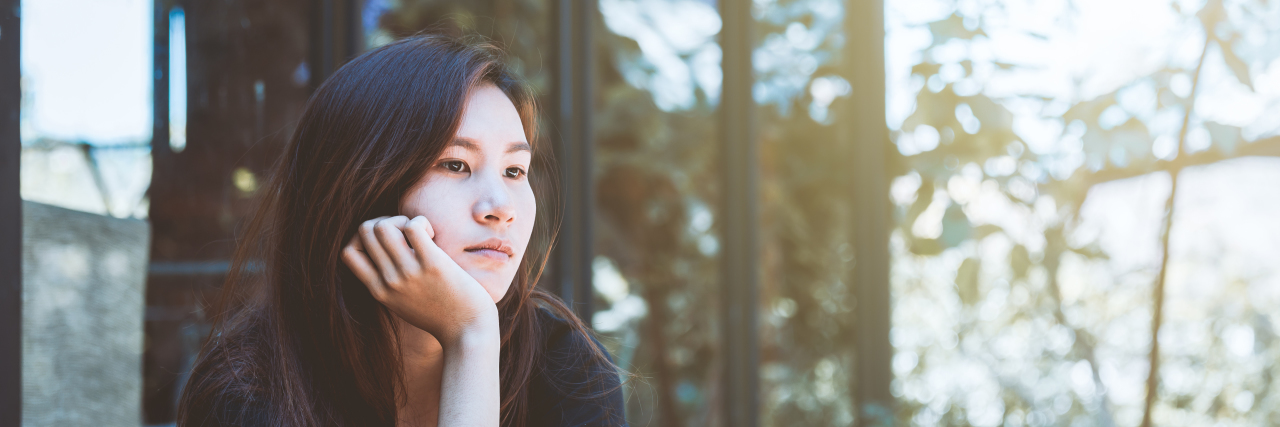One Reason the COVID-19 Pandemic Might Be Extra Challenging for Autistic Adults
As everyone is well aware, the coronavirus pandemic is wreaking havoc worldwide. As the number of COVID-19 cases increases, some states have declared lockdown orders and schools around the nation have closed for a long period of time. Due to the closures and restrictions (e.g. social distancing) to prevent the spread of this respiratory virus with potentially life-threatening complications, all of us (whether we are at high risk or not) are affected and have to adjust to a “new normal.” This means we are going to have to stay in our houses for a while (except for essential purposes) and not gather with our friends and other loved ones.
While these drastic measures are hard for everyone, they are especially hard for the autistic population. A lot of autistic people thrive on routine, and having our normal activities disrupted due to closures and restrictions can cause us to feel like we have lost control. It is a tough time for us as we are slowly processing the fact that there is no definite end date to this chaos. So with that in mind, I am going to write about how this pandemic affects people on the spectrum from the perspective of someone who lives with the condition.
Perhaps the biggest impact this virus is having on my life (as well as other people with autism) is on social distancing. I understand that social distancing is important to help prevent the spread of the virus to people who are vulnerable. On the flip side, social distancing comes at a cost to many people on the spectrum (as well as those who care for them) who often have a very difficult time adjusting to changes in routine as well as socially connecting with other people. With schools or workplaces that are deemed “nonessential” closed and not having physical access to key social contacts (due to stay at home orders and/or physical distancing protocols), many autistic people are struggling to make sense of all these sudden changes.
Around mid-March, my routines and daily activities came to a sudden halt. My workplace is closed — I work at a school, and schools in my state are closed for a minimum of six weeks. Weekly community outings with my support person whom I cherish are canceled for the time being. Due to the closing of nonessential businesses such as restaurants, my family and I have to eat at home. I had to celebrate my 28th birthday at home. All these sudden changes coupled with not knowing the end date of this situation caused my anxiety to skyrocket. I became very upset when I found out my routine was disrupted and that I couldn’t have access to my favorite activities due to social distancing protocols.
I recently began to accept my new situation and was able to establish some sort of routine to fill my time. My family and I try to go out and exercise together at least once a day. I am able to work on projects (such as writing a play) and do some more writing that I wasn’t able to do because I had a busy schedule. So I am trying to look at the silver lining of this whole situation.
This leads us to what solutions or strategies would help autistic people get through these tough times. I think the best place to start for those who help or care for someone with autism is to acknowledge their feelings of sadness or disappointment about having their daily routines disrupted. This is a time where you will probably see more more meltdowns and stimming from your loved one. Please understand that this is part of the process of coping with the changes brought forth by this pandemic. Explain to the person that this will not last forever and that we have to utilize “social distancing” precautions (like not going to a favorite restaurant or seeing favorite people) so we can conquer the virus faster.
Lastly, if you or your loved one are unable to see key people (teachers, therapists, friends, support staff), you can keep in touch via texting, Facetime, Skype and other virtual messaging during this time. I was able to FaceTime with my companion since we cannot do our traditional outings. Lastly, try to find key projects and activities you can do to keep busy while at home. As I stated before, I am working on writing a couple of blog posts and composing a play about autism.
While these strategies will not alleviate the hardships autistic people are facing in the wake of the coronavirus pandemic, they can help us deal with it a little bit better. We are all living in uncertain times right now, and it’s important that we reach out to each other, especially our disabled and autistic community members.
For more on the coronavirus, check out the following stories from our community:
- What to Do When Your Child on the Autism Spectrum’s Routine Is Disrupted by the Coronavirus
- If I Get COVID-19 It Might Be Ableism – Not the Virus – That Kills Me
- What to Do If the Coronavirus Health Guidelines Are Triggering Your Anxiety or OCD
- How Can You Tell the Difference Between Anxiety and COVID-19 Symptoms?
- 10 Face Masks People With Chronic Illness Recommend
Getty image by AdKasai.

